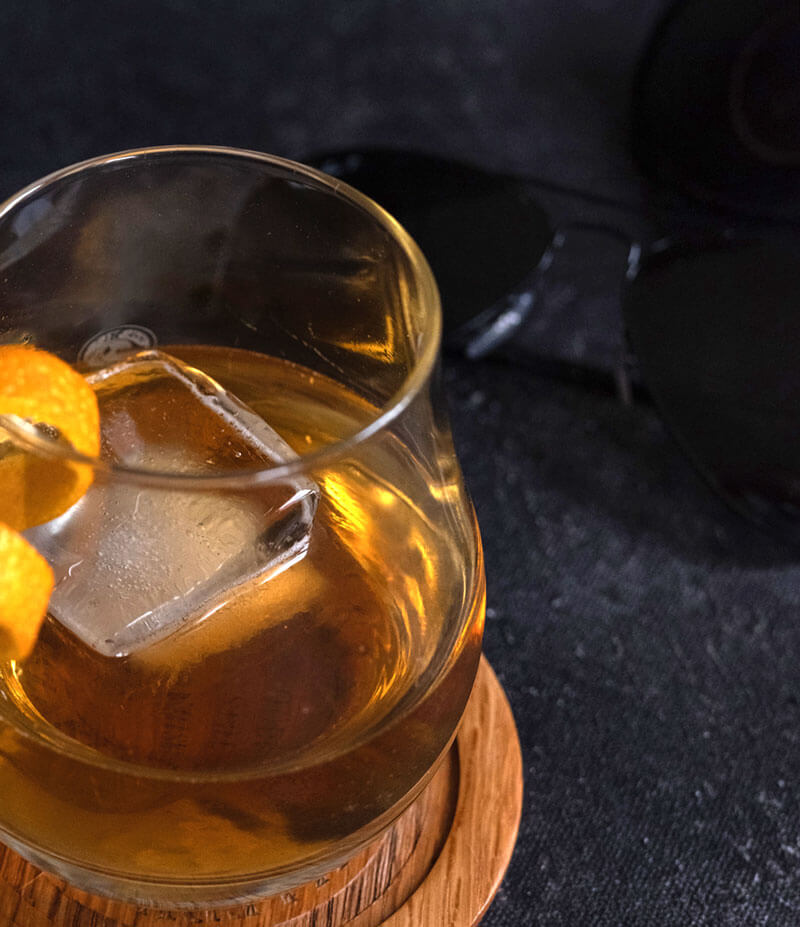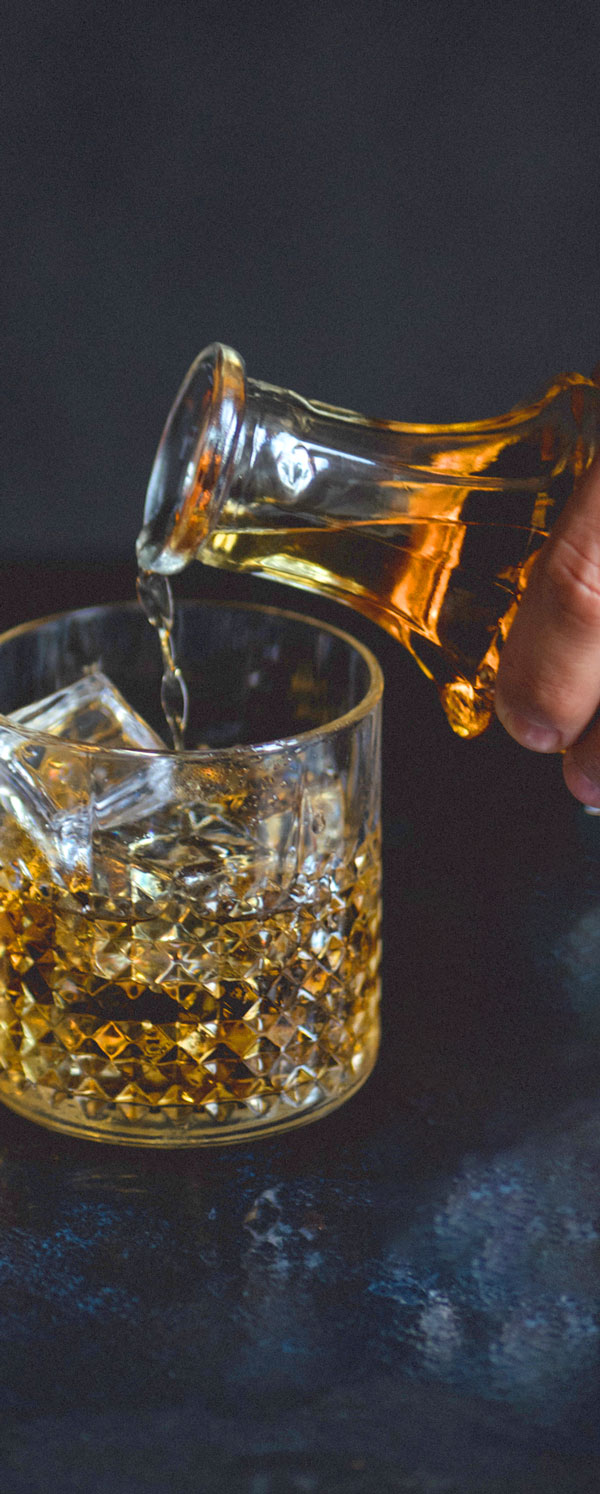The Truth About
Alcohol and Health

Introduction
The idea that moderate alcohol consumption offers health benefits is based on a lot of bad science and myth. While many people want to believe that having a glass or two of red wine or other alcoholic beverage on a near daily basis is good for their health. But it is not true…
The truth is likely to rub some people the wrong way. But please hear me out as I explain how we got where we are and what science shows us today.
Where the Myth Began…
The big moment in promoting wine as a health food was in 1991, on an episode of 60 Minutes, when the late Morley Safer brought the idea that red wine consumption was responsible for the “French Paradox,” which referred to the lower risk for death due to cardiovascular disease in the French population despite higher dietary cholesterol levels.
The French Paradox was attributed to the presence of antioxidant polyphenols in wine, especially red wine. The compound resveratrol received a lot of the credit, but the resveratrol content in a 5-oz glass of red wine ranges from only 0.03 to 1.07 mg, while in white wine it ranges from 0.01-0.27 mg.
Subsequent studies showed this very low level of resveratrol is not associated in any benefit in reducing cardiovascular, cancer, or all-cause mortality. In fact, it provides zero health benefits at these trace levels.1 Resveratrol promotes health at a dosage of approximately 1,000 mg per day.
Better Choices for Dietary Polyphenols
If you follow my newsletters and books, you know that I am a HUGE fan of a high intake of dietary polyphenols, especially flavonoids. My personal daily goal is getting at least 500 mg of from a wide variety of dietary sources. I also get at least 1,500 mg additional flavonoids through supplementation and I also take 500 mg of resveratrol.
It would take 2,500 glasses of red wine to provide equivalent amounts of flavonoids and resveratrol that I get from my diet and supplements on a daily basis (see Dr. Murray’s Top 7 Superfoods).
My point is that wine is not a great source of these compounds. In fact, drinking wine is not going to appreciably increase your intake of polyphenols. Focus on dietary sources like berries, citrus, cacao, green tea, legumes, etc.
And really, if you want a super healthy red beverage, nothing tops a glass of beet juice. LOL – I know it is not the same as a glass of Cabernet, but it is an AMAZING superfood with over 100 clinical studies showing TRUE health benefits.

What is Moderate Alcohol Consumption?
The American Heart Association and other medical organizations in the U.S. imply that drinking in moderation provides some health benefit, but newer data shows that it does not. First, the term “moderate” alcohol consumption is generally referred to as the intake of 100 to 200 g of alcohol per week. That is a lot of alcohol…
 One bottle of wine (750 ml) contains five glasses of wine with each glass providing 5 oz of wine and the equivalence to 14 g of pure alcohol. So, 100 to 200 g of alcohol per week translates to one or two 5-oz glasses of wine per day.
One bottle of wine (750 ml) contains five glasses of wine with each glass providing 5 oz of wine and the equivalence to 14 g of pure alcohol. So, 100 to 200 g of alcohol per week translates to one or two 5-oz glasses of wine per day.
Does a weekly intake of 100 to 200 g of alcohol promote health or longevity? Based upon a combination of non-alcohol industry funded population-based studies and newer genetic analyses, the answer is a strong no.
In fact, according to a recent detailed meta-analysis in the medical journal The Lancet, a weekly intake of 200 g of alcohol compared to 100 mg carries with it a loss of 1-2 years of life expectancy.2
And according to data from the Institute for Health Metrics and Evaluation (IHME), in people under the age of 40, alcohol consumption at any level is associated with no health benefits at all and only harm.
Where alcohol intake may possibly show some health benefits is limited to people over forty years old who have a “limited” consumption of alcohol. That translates to less than one glass of wine per week. That is a much lower intake than one or two glasses of wine per day.
My Personal Experience
Let me share a personal experience I had more than ten years ago that really supported I am on the right track with my thoughts on alcohol consumption. I had a complete brain imaging scan by my friend, Dr. Daniel Amen. I wanted to get that done because Alzheimer’s disease runs in my family.
After the scan, I was watching Dr. Amen while he examined my brain images. His face showed amazement and as he looked intently at the computer screen, he spoke to me slowly with great sincerity, “I love your brain. I have serious brain envy.”
Honestly, to have this renowned and caring man speak so warmly about my brain meant so much to me. Dr. Amen wanted to know what I was doing differently than many of the other health experts and doctors he had evaluated. And by the way, Dr. Amen has scanned over 100,000 brains. More than anyone else on this planet. I trust him and his opinions when it comes to brain health.
I told him about my diet and all the supplements that I take (click here to see my personal supplement program), but what Dr. Amen really felt that no alcohol consumption was the biggest difference with me compared to so many other health-minded individuals including leading experts in health and nutrition that he has done brain scans on.
Dr. Amen shared with me that in his experience even a single glass of wine a day consumed on a regular basis is enough to show negative findings on a brain scan. I believe him, after all, alcohol and its metabolite, acetaldehyde, are cellular toxins.
Dr. Amen also assured me that I would NEVER get Alzheimer’s disease given the tremendous love I have bathed my brain in for most of my life in the form of super nutrition and dietary supplements. I believe that too.
If You Are Going to Drink Alcohol…
My personal recommendation is to stay away from alcohol, but if you are going to continue with your “moderate” alcohol consumption, I want to give you some clear recommendations to potentially mitigate the damage caused by moderate alcohol intake. But make no mistake, my first recommendation is to avoid alcohol consumption or limit it to no more than one or two glasses of wine per week.
The most important dietary guidelines for supporting good liver function and alcohol detoxification are to avoid refined sugar and flour products, drink at least 48 ounces of water each day, and consume plenty of low-glycemic, nutrient-rich fruit and vegetables for their rich supply of phytochemicals that enhance detoxification and protect cells from damage.
Here are some specific foods that are particularly helpful to eat on a regular basis:
- Garlic, legumes, onions, eggs, and other foods with a high sulfur content
- Cabbage-family vegetables, especially broccoli, Brussels sprouts, and cabbage
- Green drinks like spirulina, barley, kamut, or wheat grass juice, and matcha.
- Beets, artichokes, carrots, lemons, and many herbs and spices such as basil, cilantro, mustard, turmeric, cinnamon, and ginger are also great help.
As far as supplements, in addition to foundation supplements, e.g., a high potency multiple vitamin and mineral formula, D3 at 2,000 to 4,000 IU per day, fish oil providing EPA+DHA at 1,000 to 3,000 mg per day, and grape seed extract at 150 to 300 mg per day. I would recommend the following:
- N-acetylcysteine (NAC): 500 to 1,200 mg per day
- R-Alpha-lipoic Acid: 200 to 300 mg per day
Final Comments
Despite laying out the research and my thoughts above, I realize that many people are not going to give up their belief that having a daily drink or a glass of wine is a healthful practice…People are funny that way. We all want to justify our behavior. And I guess that is what I am doing here.J After all, my personal alcohol intake is very limited. I might have a half a glass of wine or a beer every two or three years if at all.
Thanks for taking the time to read this information, I hope it was helpful. Please pass it on if you feel it might help others.
The overall message here is simple. LOVE YOUR BRAIN! Staying away from alcohol is a good step in that direction.
References:
- Semba RD, Ferrucci L, Bartali B, Urpí-Sarda M, et al. Resveratrol levels and all-cause mortality in older community-dwelling adults. JAMA Intern Med. 2014 Jul;174(7):1077-84.
- Anderson BO, Berdzuli N, Ilbawi A, et al. Health and cancer risks associated with low levels of alcohol consumption. Lancet Public Health. 2023 Jan;8(1):e6-e7.
